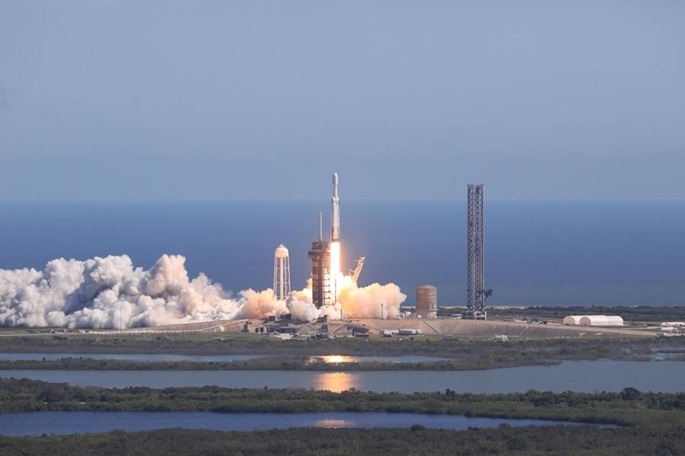U.S. launches new mission to study Jupiter's moon Europa
Published : 14 Oct 2024, 22:05
NASA and SpaceX launched a new mission to Jupiter on Monday to explore the mysteries of Europa, Jupiter's ocean moon, reported Xinhua.
The Europa Clipper spacecraft, which is NASA's largest planetary spacecraft, launched on a SpaceX Falcon Heavy rocket at 12:06 p.m. Eastern Time from NASA's Kennedy Space Center in the U.S. state of Florida.
NASA later confirmed the spacecraft separated from the rocket, and is now sailing through space on its own, bound for the Jupiter system.
The Deep Space Network in Canberra, Australia, has acquired signal from Europa Clipper after its launch, marking the first indicator that the spacecraft is communicating with Earth, according to NASA.
"Today, we embark on a new journey across the solar system in search of the ingredients for life within Jupiter's icy moon. Our next chapter in space exploration has begun," NASA Administrator Bill Nelson said on social media platform X.
Europa Clipper is the first mission designed to conduct a detailed study of Jupiter's moon Europa.
The spacecraft is the largest spacecraft NASA has ever developed for a planetary mission with solar arrays spanning more than 30 meters when deployed and weighing nearly 6,000 kilograms at launch.
Europa Clipper will travel about 2.9 billion kilometers to reach Jupiter in April 2030. The spacecraft, in orbit around Jupiter, will make nearly 50 flybys of Europa at closest-approach altitudes as low as 25 kilometers above the surface, soaring over a different location during each flyby to scan nearly the entire moon, according to NASA.
The mission aims to understand the nature of Europa's ice shell and the ocean beneath it, along with the moon's composition and geology.
The mission's detailed exploration of Europa will help scientists better understand the astrobiological potential for habitable worlds beyond Earth, said NASA.
Europa shows strong evidence for an ocean of liquid water beneath its icy crust. Scientists are almost certain that hidden beneath the icy surface of Europa is a saltwater ocean thought to contain about twice as much water as Earth's global ocean.
Beyond Earth, Europa is considered one of the most promising currently habitable environments in the solar system.


